Fred Nickols: Profiles in Knowledge

This is the 119th article in the Profiles in Knowledge series featuring thought leaders in knowledge management. Fred Nickols is a solution engineer, writer, consultant, and organizational generalist. He helps people in organizations figure out practical ways of coping with difficult workplace situations. Fred’s website is home to more than 200 free papers, articles, book chapters, and the award-winning Knowledge Workers’ Toolroom.
Background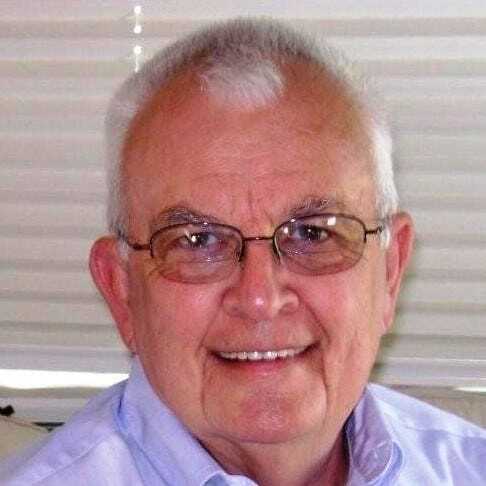 Silver Fox Profile
Silver Fox ProfileFred Nickols is a “Silver Fox,” an older consultant with many years of experience in a wide variety of areas. Currently, Fred is the Managing Partner of Distance Consulting LLC. His primary specialty is devising practical solutions to difficult and vexing problems of individual, team, process and organization performance.
Fred served 20 years in the United States Navy, retiring as a decorated Chief Petty Officer. As a Fire Control Technician, his work in the Navy focused on operating, maintaining and repairing complex shipboard weapons systems. He is a skilled troubleshooter and diagnostician, and he comes quickly to the heart of the matter at hand.
Upon retiring from the Navy, Fred took up a second career in the private sector, working first as a consultant at three small firms, then as Senior Vice President for Systems and Operations at Monarch Financial Services in New York City. Fred finished his career in the private sector with a 12-year stint as an Executive Director at Educational Testing Service, in Princeton, NJ, where he ran the Custom Operations Division, served as Chief of Staff for Operations, and headed up the Strategic Planning and Management Services unit. Upon retiring from ETS, Fred returned to consulting.
The functional and topical areas in which Fred has worked include sales, marketing, information systems, operations, process design and documentation, management skills and practices, claims adjudication, communities of practice, knowledge work, strategic and operational planning, strategic and operational decision-making, measurement systems, organizational restructuring, and change management. The industries in which he has worked include education, finance, healthcare, insurance, pharmaceuticals and telecommunications.
EducationUnited States International University — Studied psychology and statistics, 1970–1971ExperienceDistance Consulting LLC — Managing Partner, 2002 — PresentEducational Testing Service — Executive Director, 1990–2001Monarch Financial Services — Senior VP, 1987–1989Organization Performance Systems — President, 1978 -1986Systems Corporation of America — President, 1976 -1977Athena Corporation — VP and Director of Consulting Services, 1975 -1976Manpower Development Services — Consultant, 1974 -1975United States Navy — Chief Fire Control Technician, 1955 -1974ProfilesAboutResuméLinkedInTwitterFacebookContentLinkedInPostsArticlesResearchGateAcademia.eduGoogle ScholarDistance ConsultingComplete Site IndexThe Knowledge Worker’s Tool Room: Conceptual and Visual Tools for Knowledge WorkersArticlesSiteBook Reviews (16)Communities of Practice: A Collection of Resources (9)Consulting (13)Control Theory View of Human Performance (27)General Interest (15)Knowledge Work & Knowledge Management (12)Knowledge Workers’ Tool Room (83)Knowledge Worker Column (105)Musings, Short Stories & Sea Stories (16)Organization Development & Change Management (24)Solution Engineering (27)Strategy, Strategic Planning & Strategic Decision-Making (17)Training & Human Performance (55)Training Journal Column (8)Work, Workers, Working & Management (60)Working Smarter Column (22)Fred Nickols on Simplified Strategic Planning — AEA365Strategy: Definitions and MeaningsChange Management 101: A PrimerDon’t Redesign Your Company’s Performance Appraisal System. Scrap It!The Knowledge in Knowledge ManagementChoosing the Right Problem-Solving Approach24 Problem-Solving ToolsFive Kinds of Gaps and What to Do about Them Three Major Domains of Performance
Three Major Domains of Performance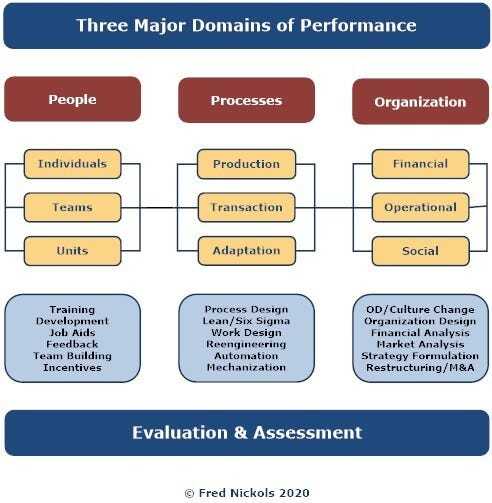 Thirteen Factors Affecting Job/Task Performance
Thirteen Factors Affecting Job/Task Performance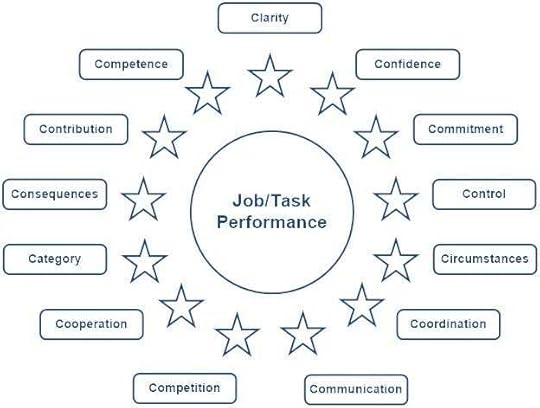
13 Cs of Performance
Clarity: The performer is clear about the task to be performed and the outcome or result it is to produce.Competence: The performer is competent to carry out the task; he or she has the necessary knowledge, skills, and degree of proficiency.Confidence: The performer is confident he or she can carry out the task and produce the desired outcome.Contribution: The task and its outcome contribute to some larger outcome or result, and the performer is clear about that contribution.Commitment: The performer is committed to carrying out the task; the task is seen as worthwhile.Consequences: The consequences for the performer of carrying out the task are, on balance, positive, not negative. Incentives are appropriate.Control: The performer is able to exercise adequate control over the task. Goals, standards, measures, measurement and feedback are all in place and available to the performer.Category: The performer’s approach to the task is consistent with its category. Tasks in the prefigured category require adherence to established procedure. Tasks in the configured category require that the performer figure out what to do.Circumstances: Environmental circumstances such as tools, resources, working conditions, etc., are supportive of task accomplishment.Cooperation: Any necessary cooperation on the part of others is forthcoming.Coordination: Any task dependencies and interdependencies are coordinated.Competition: There are no competing tasks or priorities that interfere with or preclude accomplishing the task in question.Communication: Information about the task, its outcome, relevant conditions, unforeseen circumstances, barriers and so on are promptly and freely communicated vertically and laterally (up, down and sideways) — to and from the performer.Articles by OthersThe Nine Elements of Performance — from Fred Nickols — HPT Treasures — for Evidence Based Performance ImprovementTrendSpotters: The Knowledge Worker’s Tool RoomAs Quoted by MeTypes of GroupsCommunities of Practice Resources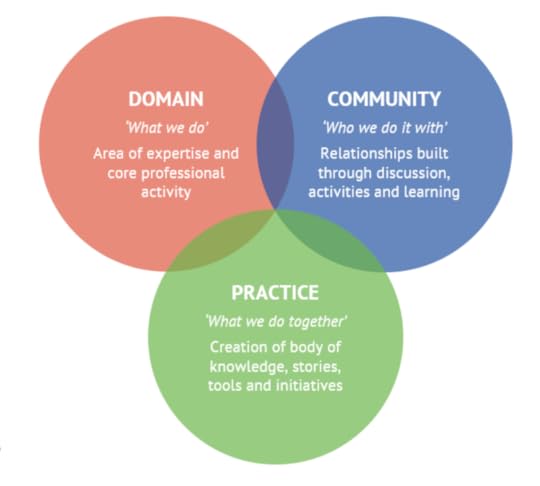
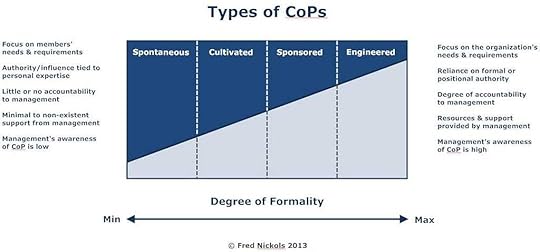 Peter DruckerPeter Drucker’s Chronicle of the Shift to Knowledge WorkKnowledge Worker: Drucker’s DictumsThe Knowledge in Knowledge ManagementExplicit, Implicit, Tacit, Declarative, Procedural, and Strategic Knowledge
Peter DruckerPeter Drucker’s Chronicle of the Shift to Knowledge WorkKnowledge Worker: Drucker’s DictumsThe Knowledge in Knowledge ManagementExplicit, Implicit, Tacit, Declarative, Procedural, and Strategic Knowledge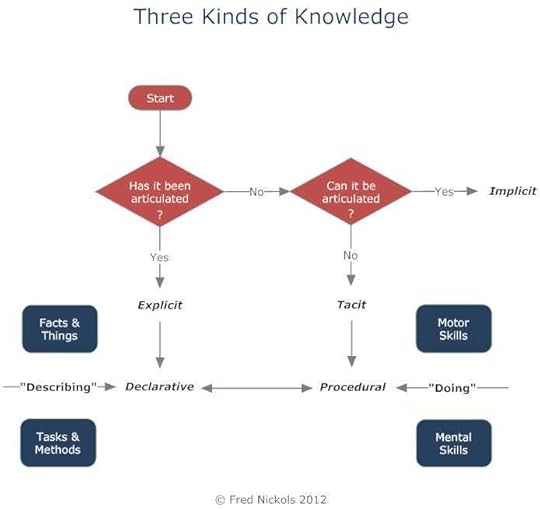 Annotations from Communities of Practice: Selected ReadingsCommunities of Practice: The Organizational Frontier — PDF version — from the Harvard Business Review (Jan-Feb 2000) — Wenger lays out the basics of CoPs in his first HBR article, asserting that they might well reinvent organizations — if managers can learn to nourish and support themCommunities of Practice: The Social Fabric of a Learning Organization from Health Forum Journal (1996) — Wenger focuses on learning and discusses where and how it happens in organizations — mainly in Communities of PracticeCommunities of Practice: Learning as A Social System from the Systems Thinker (June 1998) — Wenger, the reigning authority on communities of practice, describes in detail the nature, life cycle and functioning of a community of practice.Thought Leader of the Week
Annotations from Communities of Practice: Selected ReadingsCommunities of Practice: The Organizational Frontier — PDF version — from the Harvard Business Review (Jan-Feb 2000) — Wenger lays out the basics of CoPs in his first HBR article, asserting that they might well reinvent organizations — if managers can learn to nourish and support themCommunities of Practice: The Social Fabric of a Learning Organization from Health Forum Journal (1996) — Wenger focuses on learning and discusses where and how it happens in organizations — mainly in Communities of PracticeCommunities of Practice: Learning as A Social System from the Systems Thinker (June 1998) — Wenger, the reigning authority on communities of practice, describes in detail the nature, life cycle and functioning of a community of practice.Thought Leader of the WeekIt seems to me that KM, like lots of other things (e.g., reengineering, change management, and communities of practice to name three) has been hijacked by the information technology (IT) folks. Abraham Maslow is often credited with saying that “If your only tool is a hammer then every problem looks like a nail.” To paraphrase him, when your only tool is a computer, then every problem reduces to the bits and bytes of data. For me, people should be front and center in any true KM effort and, as far as I can tell, they are not. As a consequence, neither is the most important form of knowledge: the kind that resides in human beings.
I typically don’t quibble about definitions of knowledge but, when asked, I generally point to some different forms it can take. There is, of course, the explicit form found in books and manuals and even in help screens on your computer. This is the kind of knowledge that can be articulated. Then, too, there is the tacit kind about which Polanyi wrote — the kind that can’t be articulated and thus can’t be documented. And there is a third form: the implicit, which is knowledge that resides in people and can be articulated but hasn’t yet been articulated. This is the kind of knowledge that can be teased out by a skilled observer/analyst. Explicit, tacit and implicit — these are the three forms of knowledge that I find useful to contemplate. Computer-centric KM efforts can cope only with the first kind, leaving the other two to go begging hat in hand.
It further seems to me that the really important meaning of knowledge — that is, a state of being in a human being that provides that individual with the capability for effective action — has gotten lost in the shuffle. As a consequence, we have huge databases and huge piles of documented practices, etc., etc., but we are no closer to being able to manage knowledge (i.e., concentrate and channel the capability for action along productive lines) than when the KM movement began. Many others will no doubt argue otherwise, but they have a huge investment to protect, and I don’t.
So, we have these huge investments in KM and, as far as I can tell, not a great deal in the way of demonstrable returns to show for them. And, at the same time, managing human capability for effective action — what for me should be the true focal point for KM — goes largely unattended and unaddressed. Moreover, were it to receive attention, those doing so would quickly encounter a requirement to shed much of what is believed about managing people in the workplace. Why? Because people — especially knowledge workers — aren’t programmable machines, or even compliant servants; they are autonomous, living control systems and they must be viewed and dealt with as agents acting on their employer’s behalf. As Peter Drucker said of knowledge workers a long time ago, they can’t be managed; they must manage themselves.
The net of all this is that I have largely lost interest in most of what now passes for KM. I’m still interested in communities of practice — the kind that center on people and practices — and I’m still intensely interested in knowledge as the capability for effective action, but I don’t pay much attention to the rest of what bears the label KM.
CommunitySIKM Leaders Community PostsPresentationsCommunities of PracticePersonal ProfileGuerrilla HPTA Potpourri of Tools for Knowledge WorkersHuman Performance Technology: The Dawn of a New EraChange Management in Hard TimesChange management in hard times
The Sustainable OrganizationPodcastWhat Are Visual Thinking Tools: CFO BookshelfBooksSea Stories: Tales about Leadership, Morale and MoreExcerpt: The High Cost of an Unthinking Request Tools for Knowledge Workers
Tools for Knowledge Workers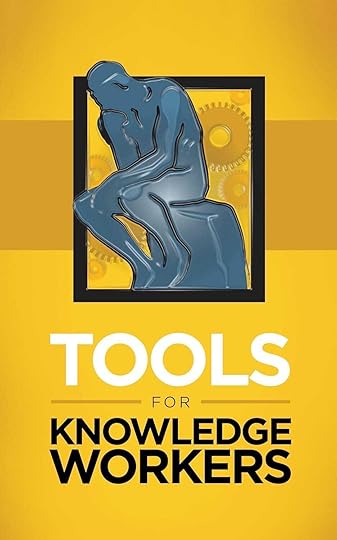 The Knowledge Management Yearbook 2000–2001 edited by John A. Woods and James CortadaChapter 1 “What is” In the World of Work and Working: Some Implications of the Shift to Knowledge WorkChapter 2: The Knowledge in Knowledge Management
The Knowledge Management Yearbook 2000–2001 edited by John A. Woods and James CortadaChapter 1 “What is” In the World of Work and Working: Some Implications of the Shift to Knowledge WorkChapter 2: The Knowledge in Knowledge Management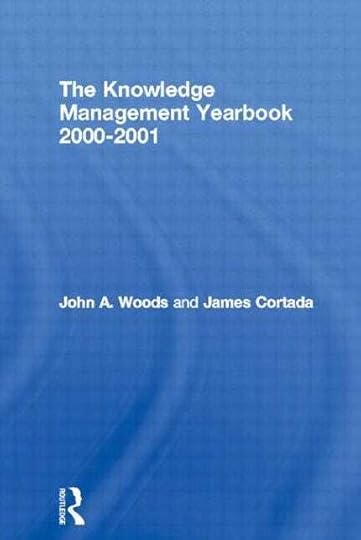 [image error]
[image error]



